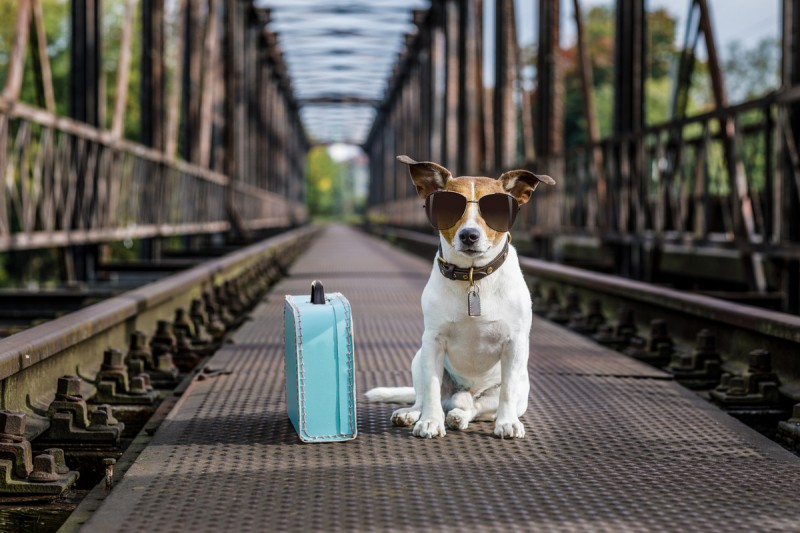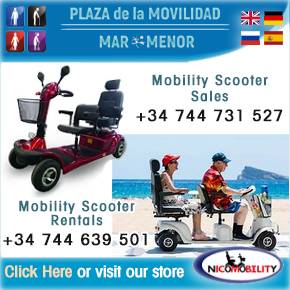

Guidelines for submitting articles to Santa Rosalia Today
Hello, and thank you for choosing Santa Rosalia.Today to publicise your organisation’s info or event.
Santa Rosalia Today is a website set up by Murcia Today specifically for residents of the urbanisation in Southwest Murcia, providing news and information on what’s happening in the local area, which is the largest English-speaking expat area in the Region of Murcia.
When submitting text to be included on Santa Rosalia Today, please abide by the following guidelines so we can upload your article as swiftly as possible:
Send an email to editor@spaintodayonline.com or contact@murciatoday.com
Attach the information in a Word Document or Google Doc
Include all relevant points, including:
Who is the organisation running the event?
Where is it happening?
When?
How much does it cost?
Is it necessary to book beforehand, or can people just show up on the day?
…but try not to exceed 300 words
Also attach a photo to illustrate your article, no more than 100kb

Pet Passports in the EU
Procedures for travelling with dogs and cats between Spain and the UK
In order to travel within the European Union, dogs and cats must have a microchip, passport and anti-rabies vaccination, and comply with the laws of each individual country.
Most vets will be happy to assist in the process to obtain a pet passport and will be able to guide you through the steps necessary. Professional removals companies will also be accustomed to transporting animals and will be able to provide you with guidance based on their own experience.
If planning to transport your pet by air, it is advisable to seek confirmation of procedures from the intended airline as well.
However, the most important document to obtain in advance is a pet passport.
Steps to obtain a pet passport:
Microchip the pet: a simple and painless procedure which should be performed before starting the vaccinations programme.
Rabies vaccinations: these can start as soon as the microchip has been fitted.
Before any vaccination is given the clinic will fill out a vaccination card. This will contain the following details:
1. The date of birth or age of the animal.
2. The serial number of the microchip, the date it was inserted and the location of the microchip. This is important as sometimes it can move.
 At least one rabies vaccination must be completed before any blood tests can be carried out for the pet passport. However, a minimum of two is recommended prior to blood extraction to increase the "pass rate", which depends on the immune system of the animal.
At least one rabies vaccination must be completed before any blood tests can be carried out for the pet passport. However, a minimum of two is recommended prior to blood extraction to increase the "pass rate", which depends on the immune system of the animal.
Following rabies vaccinations, a minimum period of one month must pass before taking a blood test to prove the rabies vaccination has been effective: this part of the process can take around a month, but once satisfactory results have been confirmed the Pet Passport can be applied for.
Taking pets back to the UK
Before taking a pet back to the UK, treatment for ticks and tapeworm must be carried out by a vet between 24 and 48 hours before beginning the journey back to the UK. If you arrive at customs without having carried out the worming treatment or without a valid pet passport, then the animal can be legally held for up to 6 months quarantine, causing a great deal of inconvenience and considerable costs!
Transporting an animal back to the UK can be quite a job, and it is advisable to check out tariffs for transportation with various carriers and their requirements for the container in which the animal is to travel well in advance.
It is also highly advisable to speak to your vet well in advance and ensure that no additional requirements have been imposed relating to the movemnet of animals.
What will happen when your pet reaches the UK?
When your pet reaches the UK, staff from the travel company or airport will scan your pet’s microchip and check the documentation. Your pet might be checked before you board, for example if you’re travelling by sea or Eurotunnel.
Your pet could be quarantined or sent back to the country it travelled from if your paperwork is deficient or the pet is not considered to be properly prepeared for travel, or is incorrectly housed.
Any costs incurred as a result of this must be paid by the petowner.
The pet can enter the country once cleared through customs.
The National Clearance Hub at nch@hmrc.gsi.gov.uk can be contacted for further information
















